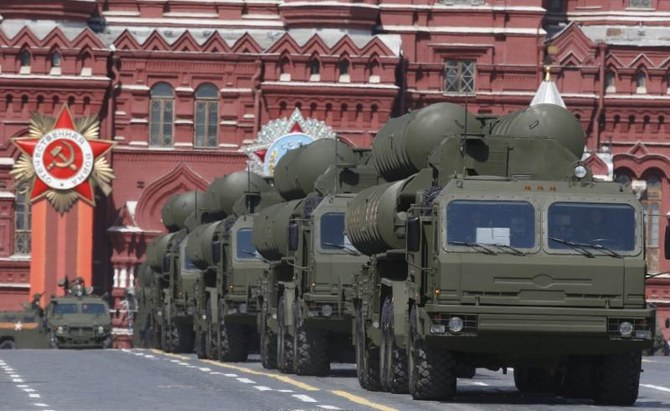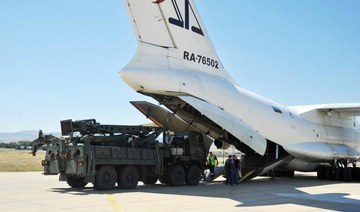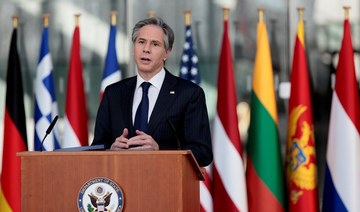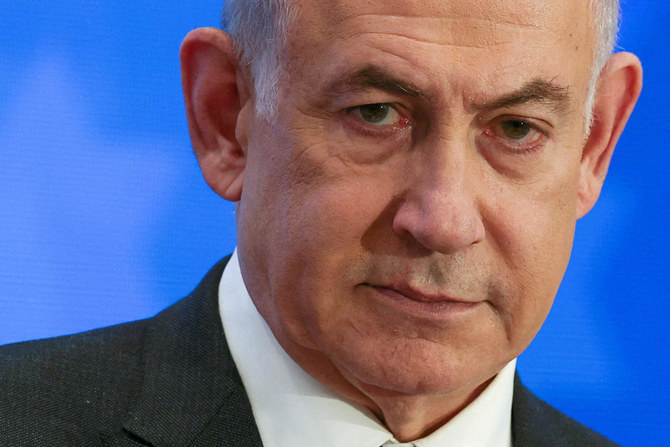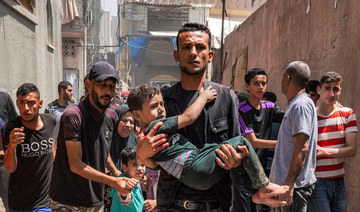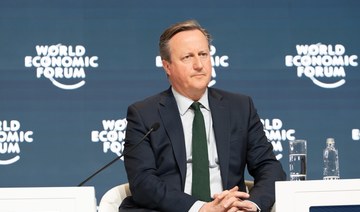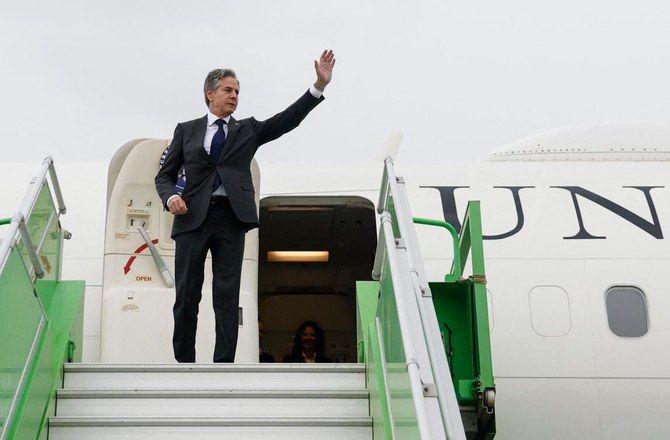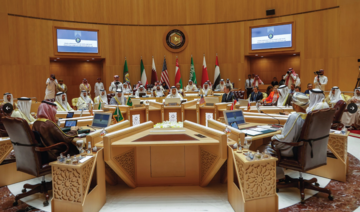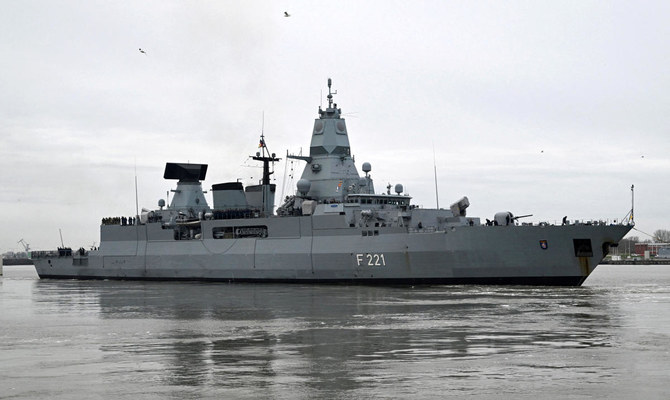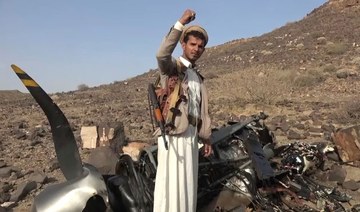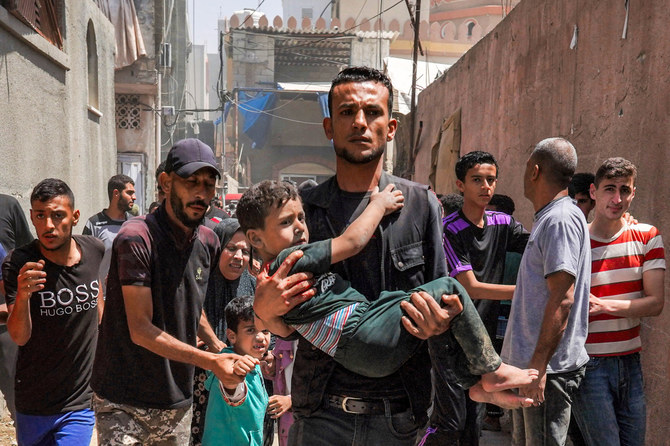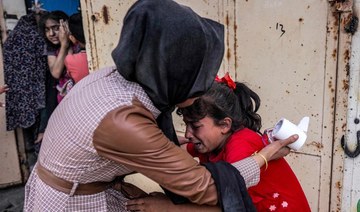ANKARA: Amid increased contact between Turkey and the western world over developments in Afghanistan and the potential refugee influx, Russia has placed the S-400 missile defense system on the table – a move that experts see as a strategy to drive Turkey away from the US and Europe.
Based on the comments by the head of Russia’s arms exporter Rosoboronexport, the Interfax news agency said that Kremlin and Ankara are about to sign a contract to supply Turkey with a second batch of S-400 air defense units.
Turkish officials have not yet reacted to the claim.
The statement, which is seen as a move to damage Turkey’s improved ties with the west and with Ukraine, coincided with the Crimea summit in Kiev, which Turkish Foreign Minister Mevlut Cavusoglu attended earlier in the week.
Turkey’s initial purchase of S-400 from Russia was a sticking point with the US and the NATO allies, rendering Ankara subject to a series of US sanctions.
The US is concerned that the Russian defense system could compromise security if Russia becomes able to secretly acquire classified information on US and NATO weaponry.
The US has forbidden Turkey’s participation in the F-35 fighter jet program, and last month President Joe Biden said he would maintain sanctions on Turkey under the Countering America’s Adversaries Through Sanctions Act (CAATSA) for buying the Russian system.
New sanctions from Washington could be disastrous for Turkey when its economy is still weak amid pandemic conditions.
Turkey’s military test-fired the S-400 in the Black Sea province of Sinop in October 2020. However, it has not fully activated the defense system, in a move considered an olive branch to the new US administration.
“Considering that Turkey has not yet fully activated even the first batch of the S-400 system, it is not reasonable for Ankara to make a new agreement with Moscow on this issue,” Prof. Emre Ersen, a Russia expert at Marmara University in Istanbul, told Arab News.
Ersen thinks the repeated statements from Russian officials regarding the S-400 seem to reflect Russia’s unease about the prospects of closer Turkish-US ties under the Biden administration as Ankara has been trying to mend ties with its Western allies in the past few months.
“The latest developments in Afghanistan and Turkey’s possible role in this issue have provided a new momentum for Turkey’s strategic relations with the West,” he said.
Mevlut Cavusoglu and his Russian counterpart Sergei Lavrov discussed the latest developments in Afghanistan on Aug. 18 and insisted on the necessity of ensuring security there.
But, a couple of days later Cavusoglu made a controversial statement during the Crimean Platform meeting in Kiev on Aug. 23, saying Turkey has not and will not recognize the illegal occupation of Crimea by Russia and will support Ukraine’s territorial integrity.
“Since the S-400 missiles remain the soft underbelly of Turkish-US relations, Moscow is most likely trying to keep this issue high on the agenda as a political instrument to make sure that Ankara remains distant from Washington,” Ersen said.
Under the $2.5 billion deal that was signed in 2017, Russia was to supply Turkey with four batteries of S-400 surface-to-air missiles.
“So far, Turkey has bought two batteries, and the second batch was optional. However, Ankara and Kremlin have been negotiating loan agreements for a couple of years. No official has spoken about the purchase of the second unit since January 2020,” Aydin Sezer, an Ankara-based Russia expert, said.
According to Sezer, Russia’s messages aim to keep Turkey away from the West at times when Ankara attaches importance to its transatlantic ties.
“It is not realistic to expect Ankara to proceed with the purchase of a second batch of S-400 when it is making lobbying efforts to return to the US F-35 fighter jet program at the same time. Therefore, it keeps its silence and will only react positively to such politically motivated calls when a new crisis emerges in its ties with the West,” he said.
Ankara and Washington held intense negotiations about the responsibility for security at Afghanistan’s Kabul international airport following NATO’s withdrawal and Turkey has used the airport mission offer as a potential area of cooperation to mend frayed ties with the US and other NATO allies, which have been tense over many issues.



